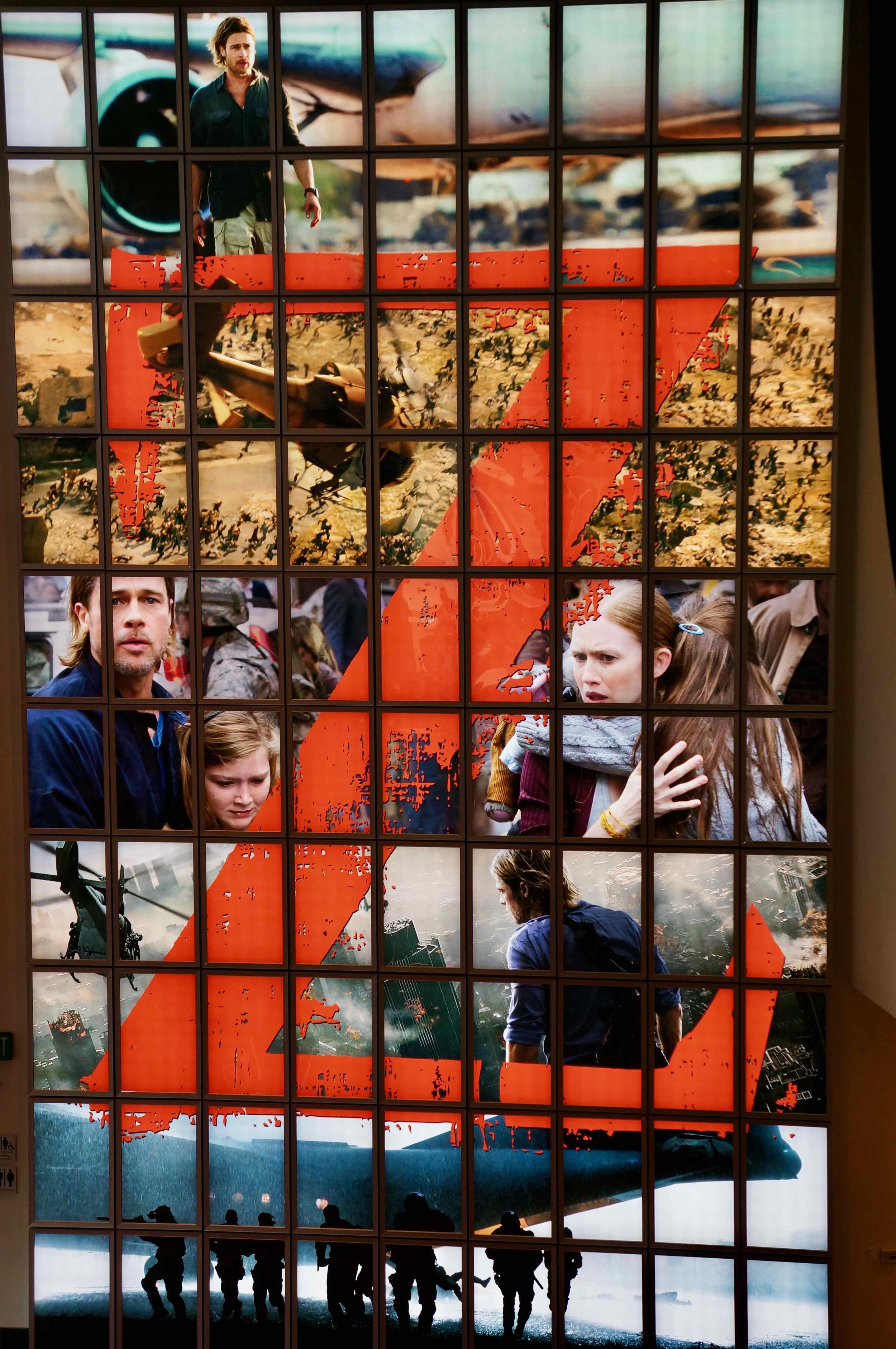Why is the zombie apocalypse so terrible for women? Gender, militarism, and ontological insecurity at the end of the world
By: Megan A. Armstrong (she/her/hers)
Does your zombie apocalypse plan involve evacuation, or sheltering in place? Would you seek out a community of survivors, or go it alone? How do you think you would fare in a world overrun by zombies?
The zombie apocalypse would be a difficult time for most people, but it struck me that as a woman, it was the last place I would want to be. Whenever I watched a new zombie film or series, I continuously found myself wondering why the zombie apocalypse always seemed to mean an immediate return to “traditional”, binary gender roles. With some exceptions, it seemed that while our collective disbelief can be suspended to allow for the rise of the living dead, a world without rigid conceptions of gendered hierarchies. The zombie overwhelmingly appeared to usher in a violent time and space, where men stood against the invading zombie to protect the women and children. I wondered what work the zombie genre was doing when it continuously repeated this story.
World War Z display by MuseLed
In this article, I argue that zombie films, and popular culture more broadly, are important sites of politics. As Laura Shepherd argues, popular culture offers a way of making sense of the world through different lenses that are deeply connected to everyday life, while also creating the conditions of possibility for the political. Studying it gives us a fuller picture of the political world, particularly where it challenges narrow understandings of common sense. In other words, pop culture and politics are co-constitutive of one another.
This article focuses on the ways in which horror, and in particular zombie horror, contributes to this field. Horror films are vehicles of affect – horror invites audiences to experience the terror of its narrative reality, and to imagine themselves within it. Apocalyptic narratives can provide important catharsis for the existential uncertainty of a world in peril, and horror can both provoke and resolve our fears, and so the affective power of these artefacts including blockbuster films, makes them important for understanding their role in the political.
The zombie does a considerable amount of work in popular culture as an embodiment of deeply existential fears. The zombie is and stands for an existential threat, materialising those things that threaten to destabilise – or destroy – the status quo. In order to better understand and analyse the political work that zombies do, in this paper I argue that the zombie can be understood as a knowledge system –a dense matrix of power relations discursively produced as natural or common sense, and which rely upon violent exclusions and abandonments. I then apply this understanding to the 2013 film World War Z.
In my article, I read WWZ as a means of confronting ontological insecurity through particularly militarised and gendered divisions of power and labour. This article highlights the critical positions of gender, heteronormativity, and militarism in the zombie apocalypse, and the ways in which the responses to the insecurity produced by the zombie make possible similar responses to “real-world” threats.
The gendered order presented in WWZ relies on a binary division of labour between the Just Warrior and the Beautiful Soul. The film follows one protagonist, Gerry (the Just Warrior), on his world-saving mission while his wife, Karin (the Beautiful Soul), remains safely aboard an aircraft carrier with the couple’s children. The Just Warrior’s participation in violence is reluctant but definitive, and he makes his sacrifice to protect “(his) (innocent) women” The Beautiful Soul, herself not a participant in the violence, supports the Just Warrior in his righteous cause but also becomes the reason for the fighting itself. These archetypes feature strongly in WWZ as the driving force behind the film’s narrative (zombies aside) and ultimately lead to the film’s (mostly) happy ending.
WWZ reproduces narratives common in the zombie apocalypse – that violence is a legitimate and inevitable response to threat, and that certain understandings and performances of gender are vital to the success of this response. In addition to what these narratives reproduce and normalise, we can also begin to consider what is made possible and thinkable through such narratives – the need to secure the ontologically insecure, the acceptance of violence in the service and protection of some families.
As a process, militarisation is intimately tied to gender – gendered power and gendered hierarchies are causal variables in making war and militarisation possible. And while gender (and its hierarchical effects) may be inherently unstable, the stability of the liberal world order is policed and maintained by an assumed “natural” gendered order. The destabilisation of this gendered order in contemporary society produces the ontological insecurity that films like WWZ attempt to navigate and resolve. They do this through their reassertion of these “traditional”, “natural” orders to ensure survival in an apocalyptic landscape. This opens up space for the conceptualization of these kinds of violence as necessary and desirable in the face of existential threat – zombie or otherwise. An answer, therefore, to the question of what makes the zombie apocalypse so terrible for women is that it reveals the fragility of emancipatory progress, particularly where ontological security is threatened.
Each blog post gives the views of the individual author(s) based on their published IFJP article. All posts published on ifjpglobal.org remain the intellectual property and copyright of the author or authors.
Megan Armstrong joined Newcastle University, UK, as a Lecturer in International Politics in September 2022. Previously, she held positions at Liverpool John Moores University, the London School of Economics, and the University of Birmingham, all in the UK. Her ongoing research is located at the intersection of critical international relations theory and feminist security studies, and her research interests include violent identity politics, popular culture, queer international relations, and critical military studies.


